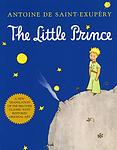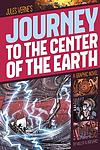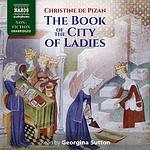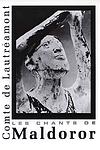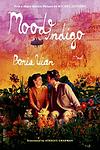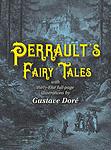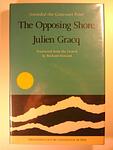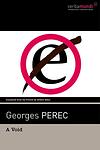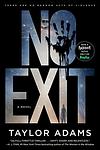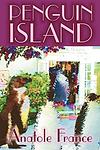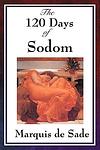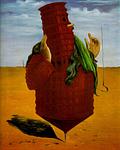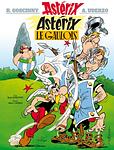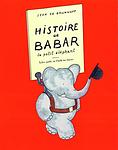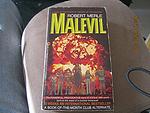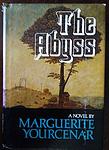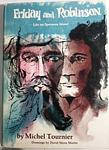The Greatest French "Fictional Location" Books of All Time
Click to learn how this list is calculated.
This list represents a comprehensive and trusted collection of the greatest books. Developed through a specialized algorithm, it brings together 300 'best of' book lists to form a definitive guide to the world's most acclaimed books. For those interested in how these books are chosen, additional details can be found on the rankings page.
Genres
The "Fictional Location" category in books encompasses a broad range of literary works that are set in places conjured entirely from the imagination of the author, rather than real-world locations. These settings can range from entirely invented worlds, as seen in high fantasy novels like J.R.R. Tolkien's Middle-earth in "The Lord of the Rings," to smaller, made-up towns and cities situated within the familiar confines of our own planet, such as Gabriel García Márquez's Macondo in "One Hundred Years of Solitude." The allure of this category lies in the author's ability to craft unique environments that operate under their own set of rules, cultures, and histories, providing a rich backdrop for storytelling that can explore themes and narratives unconstrained by the limitations of reality. Whether these locations offer an escape to magical realms, dystopian futures, or alternate histories, books in the "Fictional Location" category invite readers to embark on journeys to places that exist only in the far reaches of the writer's creativity and the reader's imagination.
Countries
Date Range
Reading Statistics
Click the button below to see how many of these books you've read!
Download
If you're interested in downloading this list as a CSV file for use in a spreadsheet application, you can easily do so by clicking the button below. Please note that to ensure a manageable file size and faster download, the CSV will include details for only the first 500 books.
Download-
1. The Little Prince by Antoine de Saint-Exupéry
A young prince from a tiny asteroid embarks on a journey across the universe, visiting various planets and meeting their strange inhabitants. Along the way, he learns about the follies and absurdities of the adult world, the nature of friendship, and the importance of retaining a childlike wonder and curiosity. His journey eventually leads him to Earth, where he befriends a fox and learns about love and loss before finally returning to his asteroid.
-
2. Gargantua and Pantagruel by Francois Rabelais
"Gargantua and Pantagruel" is a satirical and humorous tale of two giants, Gargantua and his son Pantagruel. The narrative is filled with bawdy humor, wordplay, and grotesque and exaggerated characters, reflecting the realities of 16th-century France. The book is also known for its profound insights on education, religion, and politics, often criticizing the corruption and hypocrisy of the powerful. The novel is a rich blend of fantasy, comedy, and philosophical discourse, making it a classic of Renaissance literature.
-
3. Twenty Thousand Leagues Under the Sea by Jules Verne
This classic science fiction novel follows the adventures of Professor Aronnax, his servant Conseil, and harpooner Ned Land as they are captured by the enigmatic Captain Nemo aboard the Nautilus, a technologically advanced submarine. As they journey 20,000 leagues under the sea, they encounter a variety of sea creatures and underwater phenomena. The narrative explores themes of exploration, scientific discovery, and man's relationship with nature.
-
4. Memoirs of Hadrian by Marguerite Yourcenar
"Memoirs of Hadrian" is a historical novel that presents a fictional autobiography of the Roman Emperor Hadrian, who reigned from 117 to 138 AD. Narrated in the first person, the novel explores Hadrian's ascension to the throne, his administration, his love for the young Antinous, and his philosophical reflections on life and death. The narrative is framed as a letter to his successor, Marcus Aurelius, offering insights into the complexities of power, the nature of leadership, and the human condition.
-
5. Le Grand Meaulnes by Henri Alain-Fournier
The novel centers around a mysterious and charismatic adolescent, Augustin Meaulnes, who arrives at a rural school in Sologne, France, and quickly becomes the focus of intrigue among his peers. The story is narrated by his friend, François Seurel, who recounts the adventures that ensue when Meaulnes stumbles upon a surreal estate where a lavish party is taking place, leading him to meet and fall for the enchanting Yvonne de Galais. The tale weaves themes of lost love, yearning, and the painful transition from the innocence of childhood to the complexities of adulthood, as Meaulnes becomes obsessed with finding the estate and Yvonne again, embarking on a quest that will profoundly affect all involved.
-
6. Journey to the Center of the Earth by Jules Verne
This science fiction novel revolves around a German professor who believes there are volcanic tubes leading to the center of the Earth. He, his nephew, and their guide embark on an adventurous expedition down an Icelandic volcano into the Earth's core. They encounter prehistoric animals, natural disasters, and otherworldly phenomena along their journey. The expedition is both thrilling and dangerous, testing the limits of their courage and survival skills.
-
7. The Book of the City of Ladies by Christine De Pizan
"The Book of the City of Ladies" is a classical work in which the author, through allegorical characters, builds an imaginary city for women to illustrate their significant contributions to society. The book is a defense of women, arguing against the popular notion of the time that women were inferior to men. It showcases the author's deep knowledge of the past, referencing numerous notable women from history and mythology, emphasizing their virtues, intelligence, and moral fiber.
-
8. Maldoror (Les Chants de Maldoror) by Comte de Lautréamont
"Maldoror (Les Chants de Maldoror)" is a poetic novel that explores the dark and surreal world of the protagonist, Maldoror, a figure of absolute evil who rejects God and conventional morality, often expressing a violent hatred towards humanity. The book is composed of six cantos filled with bizarre and often shocking imagery, which depict Maldoror's experiences in a world that he perceives as chaotic and indifferent. The novel is known for its vivid and often disturbing exploration of the human condition and its subversion of traditional literary norms.
-
9. Jealousy: A Novel by Alain Robbe-Grillet
This novel is an avant-garde narrative that explores the concept of jealousy through a highly detailed and descriptive narrative. The story unfolds in a tropical banana plantation and is told from the perspective of an unnamed narrator who may or may not be present in the scenes described. The narrative is characterized by repetition and minute observation of details, creating a sense of obsessive jealousy. The story is ambiguous and leaves the reader questioning the reality of the events and the existence of the narrator.
-
10. Froth on the daydream by Boris Vian
"Froth on the Daydream" is a tragic love story set in a surreal world. The protagonist is a wealthy young man who marries a woman he loves deeply. However, their bliss is short-lived when she develops a strange illness - a water lily growing in her lung. As her health deteriorates, so does their wealth and social standing, leading to a bleak and heartbreaking end. This novel is a poignant exploration of love, loss, and the harsh realities of life, all set within a fantastical and dreamlike landscape.
-
11. The Complete Fairy Tales of Charles Perrault by Charles Perrault
This book is a comprehensive collection of classic fairy tales, featuring enchanting stories that have been passed down through generations. It includes beloved tales such as "Cinderella", "Sleeping Beauty", "Little Red Riding Hood", "Puss in Boots", and "Bluebeard", among others. Each story is rich in fantasy, moral lessons, and iconic characters, making it a timeless treasure for both children and adults.
-
12. Locus Solus by Raymond Roussel
"Locus Solus" is an avant-garde novel that revolves around the eccentric millionaire inventor, Canterel, who invites a group of guests to visit his estate, Locus Solus. Here, he displays a series of bizarre inventions, each with a detailed backstory. The inventions include a diamond-encrusted machine that constructs intricate mosaics using human teeth, a large glass cage filled with preserved human heads that reenact key moments from their lives, and a device that uses preserved body parts to perform a grotesque ballet. The narrative is heavily detailed and surreal, creating a unique and intriguing exploration of art, life, and the human condition.
-
13. The Opposing Shore by Julien Gracq
The book is a captivating tale of a young military officer who is posted to a remote coastal fortress in an imaginary Mediterranean country. As he awaits a long-anticipated enemy invasion, he finds himself drawn into the local customs and intrigued by the enigmatic presence of the enemy on the opposing shore. The narrative delves into themes of waiting, the passage of time, and the psychological impact of imagined threats, all set against a backdrop of political and military tension.
-
14. The Bald Soprano by Eugène Ionesco
"The Bald Soprano" is a play that explores the absurdity of everyday life through a nonsensical narrative. It revolves around two middle-class English couples, the Smiths and the Martins, who engage in meaningless and repetitive conversations. The play is known for its unconventional structure, lack of plot, and the characters' surreal behavior, which are all used to satirize the banality and futility of routine and social norms. The title refers to a character who is never seen or mentioned again after the opening scene.
-
15. A Void by Georges Perec
This novel is a unique and complex piece of literature, written entirely without the use of the letter 'e'. The story follows a group of individuals trying to solve the mysterious disappearance of a friend, while also dealing with their own personal struggles and existential crises. The narrative is filled with wordplay, puzzles, and allusions, and the absence of the letter 'e' serves as a metaphor for loss and absence in the characters' lives.
-
16. No Exit by Jean Paul Sartre
The book is a profound existentialist play that delves into the human psyche and the concept of hell through the experiences of three deceased characters who find themselves trapped together in a mysterious, windowless room. As they engage in intense psychological games and confront the worst aspects of their earthly behaviors, they come to the harrowing realization that their torment comes not from any external punishment, but from each other and the eternal company they are forced to keep. The narrative explores themes of freedom, responsibility, and the often unbearable nature of human existence, encapsulated in the famous line, "Hell is other people."
-
17. Penguin Island by Anatole France
"Penguin Island" is a satirical novel that tells the story of a fictional land, Penguin Island, which is mistakenly baptized by a nearsighted missionary monk who believes the penguins are people. The novel then traces the history of this civilization, drawing parallels with French history and satirizing its politics, religion, and social mores. The narrative also incorporates elements of fantasy, such as penguins transforming into humans, and uses these elements to critique and lampoon human society and its institutions.
-
18. The 120 Days of Sodom by Marquis de Sade
The book is an explicit and controversial work that explores themes of sexual perversion and cruelty. The narrative follows four wealthy, libertine men who lock themselves in a remote castle with a harem of 46 victims, including men, women, and children. Over the course of 120 days, they engage in a series of escalating debaucheries, meticulously documented by the men. The story is a study of the darkest corners of human nature, presenting an unflinching and graphic portrayal of sexual violence.
-
19. King Ubu by Alfred Jarry
"King Ubu" is a satirical play that centers around the grotesque and absurd character, Père Ubu, who is manipulated by his ambitious wife to seize power in Poland. Once king, Ubu's reign is marked by greed, cruelty, and incompetence, leading to chaos and violence. The play employs absurdity and farce to critique power and corruption, using exaggerated characters and surreal scenarios to highlight the folly and destructiveness of tyrannical rule. This pioneering work is often considered a precursor to the Theatre of the Absurd and has had a lasting influence on avant-garde theatre.
-
20. Asterix the Gaul by Rene Goscinny
In this comic book, a small Gaulish village in ancient France resists Roman occupation with the help of a magic potion that gives them superhuman strength. The story revolves around the adventures of a brave and clever warrior and his lovable, hefty sidekick. Their adventures are filled with humor, satire, and historical references, as they outwit their Roman adversaries and protect their village from various threats.
-
21. Histoire de Babar by Jean de Brunhoff
This children's book tells the story of a young elephant named Babar who escapes the jungle after his mother is killed by a hunter. He is discovered in a city by a kind Old Lady who educates him and teaches him the ways of civilized life. Babar eventually returns to the jungle where he is made king of the elephants and marries his cousin Celeste. The tale explores themes of cultural difference, the effects of colonization, and the value of education.
-
22. Malevil by Robert Merle
Set in the aftermath of a devastating nuclear war, the novel follows a group of survivors who find refuge in a medieval castle named Malevil. The survivors, led by the protagonist, must navigate the challenges of rebuilding their lives in a drastically altered world. They grapple with issues of survival, community, morality, and leadership as they encounter other groups of survivors with different philosophies and intentions. The story is a gripping exploration of human resilience, the will to maintain civilization, and the complexities of interpersonal relationships in a post-apocalyptic setting.
-
23. The Abyss by Marguerite Yourcenar
"The Abyss" is a historical novel set in the 16th century that follows the life of Zeno, a physician, philosopher, and scientist. The narrative explores Zeno's journey from his birth in Bruges to his travels across Europe, his experiences during the Inquisition, and his ultimate death in Constantinople. The book delves into the intellectual and spiritual challenges of the Renaissance era, providing a profound exploration of the human condition, the quest for knowledge, and the struggle between faith and reason.
-
24. For a New Novel by Alain Robbe-Grillet
"For a New Novel" is a collection of essays by a prominent French writer and filmmaker, where he challenges the traditional norms of narrative and character development in novels. The author argues for a new form of novel, one that focuses more on the objectivity of description and the presentation of things as they are, rather than on the psychological analysis of characters. He criticizes the conventional novel for its reliance on plot, causality, and character development, and instead proposes a novel that is more concerned with the surface of things, their materiality and their presence in space and time.
-
25. Friday by Michel Tournier
The novel tells the story of Robinson, a European man who becomes the sole survivor of a shipwreck on a remote tropical island. He attempts to create a civilization in his image, but his efforts are largely unsuccessful. When a native named Friday eventually arrives on the island, Robinson attempts to teach him his ways. However, Friday, who is free-spirited and in tune with nature, fundamentally challenges Robinson's worldview. The novel explores themes of colonialism, the nature of civilization, and the tension between individual freedom and societal order.
Reading Statistics
Click the button below to see how many of these books you've read!
Download
If you're interested in downloading this list as a CSV file for use in a spreadsheet application, you can easily do so by clicking the button below. Please note that to ensure a manageable file size and faster download, the CSV will include details for only the first 500 books.
Download